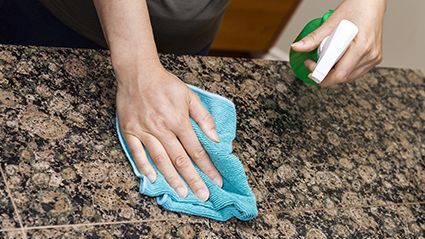
If seasonal allergies get you down, try tackling them with a good spring cleaning.
This can not only ease some of those spring symptoms, but also get rid of allergens you’ve been living with for a while, according to the American College of Allergy, Asthma and Immunology (ACAAI).
“If you aren’t someone who regularly undertakes spring cleaning, consider tackling it this year,” said Dr. Todd Mahr, an allergist and president of ACAAI. “A thorough cleaning helps get rid of things like dust, mold, pet dander and other allergens, which may have been making you miserable all winter.”
Many people think spring and fall is when their seasonal allergies kick in, Mahr said. What they might not realize is that indoor allergens can also “cause chaos” with nasal passages and lungs, and that a thorough cleaning can help, he added.
Top tip: Don’t open your window. Allergens will just float in with the spring breeze.
Even if it’s still wintery and spring seems far off where you live, start taking your allergy medications two to three weeks before the date when your symptoms usually begin, ACAAI suggests. Talk to your allergist if over-the-counter meds don’t help.
If you have a dog, cat or other furry friend, remove dander, saliva and fur residue by vacuuming often and washing upholstery, including your pet’s bed. It might be tempting to share your bed with your pet, but your slumber will be more free of allergy symptoms if you don’t.
Banish mold by keeping your home’s humidity level below 60%, the ACAAI suggests. Keeping gutters clean can also help. Use bathroom fans and clean up any standing water immediately.
Change your air filters every three months. Use filters with a MERV (minimum efficiency reporting value) rating of 11 or 12.
Vacuum regularly to reduce dust mites. A cyclonic vacuum, which spins dust and dirt away from the floor, or a vacuum with a HEPA (high efficiency particulate air) filter works well. Wash bedding and stuffed animals weekly.
It may not be possible to rid your home of all allergens, but an allergist can help you gain control of your symptoms, Mahr said in an ACAAI news release.
More information
The Mayo Clinic offers additional seasonal allergy tips.
SOURCE: American College of Allergy, Asthma and Immunology, news release
Source: HealthDay

Leave a Reply